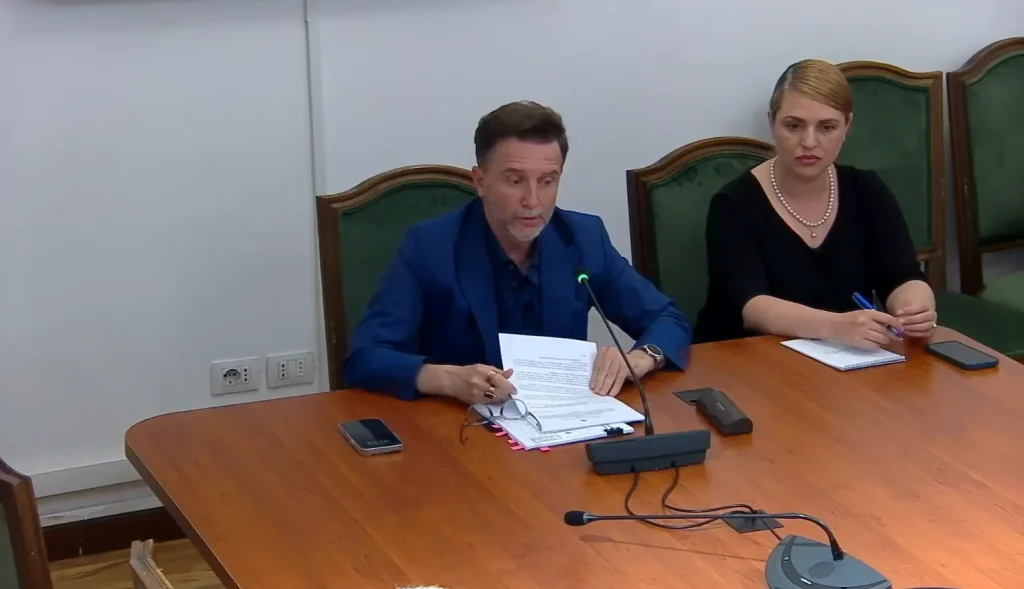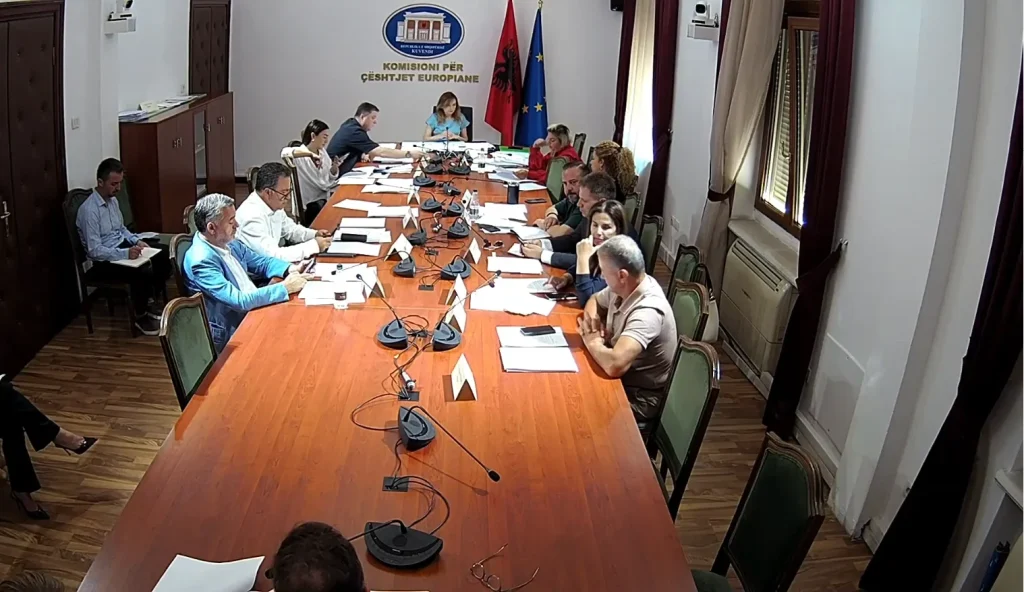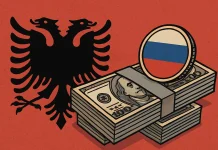By Nevila Gjata
The Parliamentary Committee on European Affairs approved in principle on Friday the draft law for the 2025–2030 national strategy aimed at combating foreign interference and disinformation campaigns that undermine security, democracy, and development in Albania.
The draft was presented by Erion Braçe, Chair of the Special Parliamentary Committee on the Fight Against Disinformation.
Goal
According to Braçe, the strategy aims to strengthen institutions to prevent foreign influence that attempts to manipulate public opinion, interfere in elections, and gain control over key sectors of the Albanian economy.

‘Albania, as a NATO member and EU candidate, remains a continuous target of hybrid attacks, including disinformation and cyberattacks’, Braçe stated, referring to the cyberattacks on Albania since July 2022, which have been attributed to groups connected to Iran.
According to Braçe, cybersecurity has become a crucial element of both national and international security.
‘The Western Balkans region is also experiencing a significant rise in cyber incidents. In 2023 alone, reported incidents increased by 40%, with over 1.2 million personal data records exposed from security breaches across regional countries during the year, while attacks surged by 200% over two years. These figures emphasize the urgent need for comprehensive measures’, he added.
Attacks
In recent years, Albania has confronted a series of complex challenges related to disinformation, cyberattacks, and foreign interference, mainly from Iran. These incidents have seriously challenged institutional capacity to protect national security, information integrity, and public confidence.
Faktoje.al has long described the vulnerabilities in Albania’s technology and data infrastructure following a series of cyberattacks primarily conducted by the Iranian group ‘Homeland Justice’. Faktoje has also reported on cyberattacks in regional countries initiated in 2022.
In Albania, these attacks have targeted key institutions such as the Parliament, INSTAT, AKSHI, State Police, and private operators like ‘One Albania’.
Meanwhile, on Friday morning, the website of Tirana Municipality was taken down. The well-known hacker group ‘Homeland Justice’ claimed via several posts on their Telegram channel that they ‘disrupted the official Municipality website, extracted sensitive data, and deleted all servers’.
Focus
The strategy drafted by the anti-disinformation committee focuses on four main pillars:
Protecting elections and the democratic process
Increasing institutional and cybersecurity
Safeguarding the economy, particularly strategic sectors
Strengthening free media and educating citizens against disinformation
Work
The Special Parliamentary Committee against Disinformation has reviewed international models and collaborated with 19 external experts, alongside institutional actors, to prepare a document aimed at reflecting the current situation and the necessary measures to be taken.
However, the strategy will remain only on paper if it is not accompanied by a concrete action plan that must be approved by the government within 2025.
‘The strategy is not a self-executing document; it requires national and political will, budget, human resources, inter-institutional cooperation and coordination, including within the Parliament of the Republic of Albania, as well as international exchange’, said Braçe.

Boycott
Sticking to political will, the opposition has boycotted the work of the special parliamentary committee since its establishment.
On Friday, DP deputy Kreshnik Çollaku acknowledged the strategy in theory but expressed skepticism about its practical implementation, pointing out that the opposition’s absence in the committee has been a weakness. He stated that without genuine commitment to free elections and resolving internal political conflicts, Albania remains vulnerable to foreign interference.
‘I have no objections about the strategy you present, but I don’t think it offers the right solutions to build the country’s immunity against hybrid and destabilizing attacks…’, Çollaku said at the parliamentary committee meeting on European affairs.
SP committee member Etjen Xhafaj warned of the threats coming from abroad through massive social media propaganda and stressed the need for stronger structures to counter them.
‘Just last summer, according to Bloomberg, over 84,000 social media pages and websites published content against Western Balkan countries, including Albania, over a span of a few weeks. We must not allow conflict hotspots to form, and while we bicker over small issues, others who oppose the country’s development act. While we focus on each other, we should watch who is trying to set fire to the house…’ he said.
Permanent Committee?
Deputy Braçe emphasized that the committee’s work has concentrated solely on protecting national interests and not on conducting investigations.
He announced that the intention is for this committee to become a permanent body within Parliament to ensure the strategy’s implementation and the necessary collaboration between institutions and international partners. According to him, the committee against disinformation does not override anyone’s competencies.











